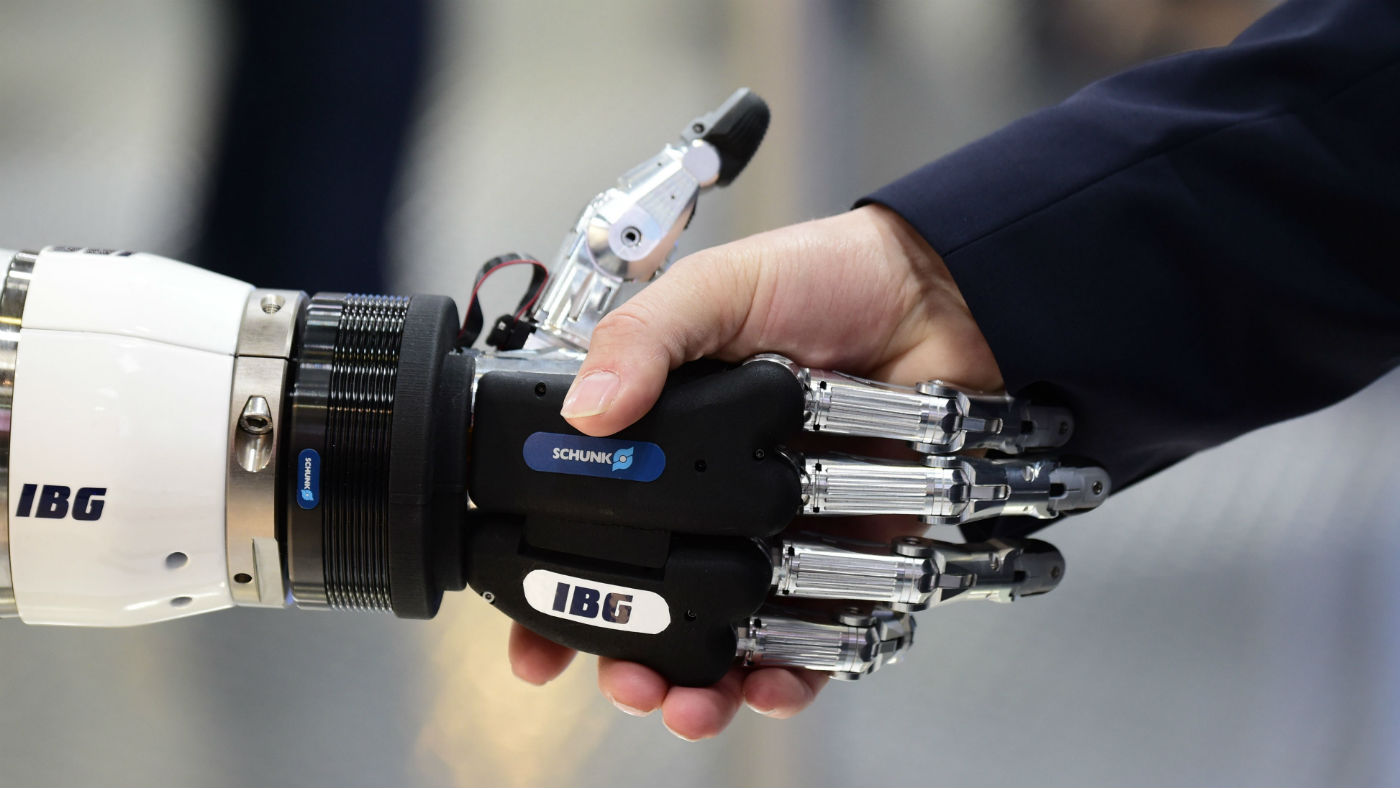Northern jobs most at risk from rise in automation
Whereas higher-skilled counterparts in the south could benefit from rising demand and increased employment

A free daily email with the biggest news stories of the day – and the best features from TheWeek.com
You are now subscribed
Your newsletter sign-up was successful
Jobs in the north of England are most at risk from the rise of robots and artificial intelligence because workers are less skilled in sectors most threatened by automation.
Older workers in northern cities who have low skill levels are particularly vulnerable as they will struggle to get a new job, MPs studying the likely effect of automation have heard.
By contrast, their counterparts in the south are likely to benefit from rising demand and increased employment.
The Week
Escape your echo chamber. Get the facts behind the news, plus analysis from multiple perspectives.

Sign up for The Week's Free Newsletters
From our morning news briefing to a weekly Good News Newsletter, get the best of The Week delivered directly to your inbox.
From our morning news briefing to a weekly Good News Newsletter, get the best of The Week delivered directly to your inbox.
“Overall the new wave of technology and investment should create jobs and prosperity” says the Daily Telegraph, “but the change will be wrenching, and the costs and benefits unevenly spread”.
The Centre for Cities think tank claims more than a quarter of all jobs in Mansfield, Stoke, Doncaster and Blackburn are at risk from robots over the next decade, concluding that “today’s least productive cities are those most exposed to the risk of job losses in the future”.
Just 13% of jobs in high-skill hubs such as Cambridge and Oxford will be threatened.
It follows a number of recent warnings by the chief economist of the Bank of England, Andy Haldene, in which he said the UK would need a skills revolution to avoid “large swathes” of people becoming “technologically unemployed” as artificial intelligence makes many jobs obsolete.
A free daily email with the biggest news stories of the day – and the best features from TheWeek.com
“In recent years, we have become accustomed to seeing doomsday headlines predicting the rise of the robots and the end of work as we know it,” says the Belfast Telegraph but “it is unhelpful to think of technology as replacing entire jobs or occupations”.
“In reality, most jobs require a mix of tasks and while some can be easily automated, others cannot. Looking at the task structure in particular jobs therefore provides an estimate of exposure to automation which is perhaps not quite as dramatic as you might expect,” says the paper.
Long-term economists predict automation will in fact boost productively and increase wages as robots take over repetitive tasks.
This will be a boon to highly paid professions such as accountancy and law, but will leave the likes of retail and hospitality workers increasingly left behind.
Up to a fifth of shop assistants and cashiers could find their jobs eliminated over the next ten years.
“What jobs are lost, what the newly created jobs are, and how each compares to the other in terms of quality are central to determining the effects of automation technologies,” says the Nevin Economic Research Institute (Neri).
Claiming up to 60,000 jobs in Norther Ireland are at risk, and a further 460,000 facing substantial changes, due to the impact of automation, Neri says there is a danger that automation will reinforce the trend of “polarization” in the jobs market, where most new jobs are in either high or low-skill occupations, with fewer jobs in “middle skill” occupations like manufacturing.